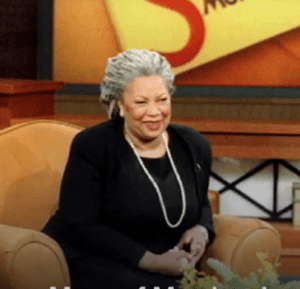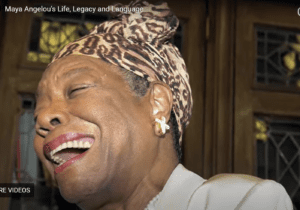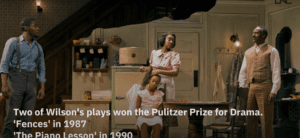Heritage of African American Sound
Heritage of African American Sound. Step into the world of African American sound recordings and prepare to be transported through time. This captivating article takes you on a journey through the rich heritage of these recordings, showcasing the incredible impact they have had on American culture and music. From the soulful melodies of gospel to the electrifying beats of jazz and blues, these recordings have not only preserved history but also revolutionized the music industry. Get ready to delve into the stories behind the iconic voices that shaped generations, as you discover the profound significance of African American sound recordings.

This image is property of images.unsplash.com.
Early African American Musical Traditions
Origins of African American Music
African American music has a rich and diverse history that traces its roots back to the African continent. Through the transatlantic slave trade, enslaved Africans brought their musical traditions with them to the Americas. These traditions served as a way to preserve cultural identity and provide an outlet for expression in the face of unimaginable hardship. The fusion of African musical elements with the influences of European and Indigenous cultures in the Americas gave birth to a unique and powerful form of music that would go on to shape the course of American music as a whole.
Influence of African Rhythms
One of the most distinctive features of African American music is its rhythmic complexity and the prominent role of percussive instruments. African rhythms served as the foundation for many African American musical genres, providing a driving force that set them apart from European musical traditions. The use of syncopation, polyrhythms, and call-and-response patterns brought a vibrant energy and infectious groove to the music, laying the groundwork for future genres such as jazz, blues, and funk.
Spirituals and Work Songs
In the darkest days of slavery, African Americans found solace and strength in the power of music. Spirituals emerged as a form of religious expression and a means of sustaining hope and resilience. These songs often carried double meanings, serving as both expressions of faith and coded messages for freedom. Work songs, on the other hand, were rooted in the daily labor of enslaved Africans. They provided a sense of rhythm and unity during the grueling tasks of plantation life, lifting spirits and fostering a sense of solidarity among the workers.
The Birth of Blues
Out of the struggle and hardships of the post-slavery era came the blues, often considered the cornerstone of African American music. Originating in the Mississippi Delta region, the blues embodied the pain, longing, and resilience of the African American experience. With its characteristic 12-bar structure and soul-stirring lyrics, the blues gave voice to the joys and sorrows of everyday life. Through its raw honesty and emotional depth, the blues laid the foundation for future genres such as rock and roll.
Important Figures in African American Music History
Scott Joplin - The King of Ragtime
Scott Joplin was a pioneering African American musician and composer who is often referred to as the "King of Ragtime." His syncopated piano compositions, such as "Maple Leaf Rag" and "The Entertainer," played a significant role in popularizing ragtime music. Joplin's music combined African rhythms with European harmonies, creating a distinctive sound that captivated audiences and influenced countless musicians in the years to come.
Louis Armstrong - The Father of Jazz
Louis Armstrong is widely regarded as one of the most influential figures in the history of jazz. Known for his virtuosic trumpet playing and charismatic stage presence, Armstrong revolutionized the art of improvisation. His innovative approach to soloing and his ability to infuse emotion into every note paved the way for the development of jazz as a truly American art form. With iconic recordings such as "West End Blues" and "What a Wonderful World," Armstrong's legacy continues to inspire musicians across the globe.
Bessie Smith - Empress of the Blues
Bessie Smith, often referred to as the "Empress of the Blues," was a trailblazing African American blues singer in the early 20th century. With her powerful voice and magnetic stage presence, Smith captured the pain and joy of the human experience in her recordings. Songs like "Downhearted Blues" and "Nobody Knows You When You're Down and Out" showcased her ability to convey raw emotion and solidified her status as one of the greatest voices in American music history.
Duke Ellington - A Jazz Legend
Duke Ellington was a prolific composer, pianist, and bandleader who played a vital role in shaping the sound of jazz. Over the course of his career, Ellington composed numerous jazz standards, such as "Take the A Train" and "Mood Indigo," which showcased his innovative arrangements and his ability to fuse various musical influences into a cohesive whole. His contributions to the genre continue to be celebrated, and his influence can be heard in the work of countless jazz musicians today.

This image is property of images.unsplash.com.
Impact of African American Music on Popular Culture
The Evolution of Jazz
Jazz, born out of the African American experience, has had a profound impact on popular culture. From its origins in New Orleans in the early 20th century, jazz quickly spread across the country, evolving and adapting to reflect the changing times. Jazz became a symbol of freedom, creativity, and cultural expression, breaking down barriers and transcending racial and social divides. Its influence can be heard in various genres of music, including rock, pop, and hip hop, and its improvisational spirit continues to inspire musicians of all backgrounds.
Influence on Rock and Roll
African American music, particularly the blues, played a crucial role in the development of rock and roll. Artists like Chuck Berry, Little Richard, and Sister Rosetta Tharpe infused their music with the rhythms and raw emotion of the blues, laying the foundation for the energetic and rebellious sound that would define rock and roll. The popularity of African American rock and roll artists paved the way for greater acceptance and appreciation of black musicians in the mainstream music industry.
Birth of Hip Hop
In the South Bronx during the 1970s, African American and Latinx youth created hip hop, a cultural movement that would revolutionize music, art, and fashion. Drawing on the traditions of African American music and oral storytelling, hip hop gave a voice to marginalized communities and provided a platform to express their experiences, struggles, and aspirations. Hip hop's impact on popular culture is immeasurable, as it continues to dominate the music charts and influence global youth culture.
Contributions to R&B and Soul
Rhythm and blues (R&B) and soul music are genres deeply rooted in African American musical traditions. In the 1950s and 1960s, artists like Ray Charles, Sam Cooke, and Aretha Franklin popularized R&B and soul music, infusing it with their unique style and soulful vocals. These genres became vehicles for expressing themes of love, heartbreak, and the African American experience. R&B and soul music continue to thrive, with artists like Beyoncé, Alicia Keys, and John Legend carrying on the tradition and pushing the boundaries of the genres.
Record Labels and Studios Promoting African American Sound
Motown Records - Defining the Sound of Young America
Motown Records, founded by Berry Gordy Jr. in 1959, played a pivotal role in promoting African American sound and artists. With its signature "Motown Sound," characterized by catchy melodies, polished production, and tight harmonies, the record label achieved massive commercial success. Artists like Stevie Wonder, The Supremes, and Marvin Gaye became household names and helped break down racial barriers in the music industry. Motown Records remains an iconic symbol of African American excellence and continues to influence popular music today.
Blue Note Records - Pioneers of Jazz
Blue Note Records, founded by Alfred Lion and Francis Wolff in 1939, became synonymous with jazz excellence. The record label recorded and promoted some of the greatest jazz musicians of all time, including Miles Davis, John Coltrane, and Herbie Hancock. Blue Note's commitment to artistic integrity and progressive jazz styles helped shape the course of the genre and secure its place in the annals of music history. The record label continues to release innovative jazz recordings and preserve its legacy through its extensive catalog.
Chess Records - Home of Blues Greats
Chess Records, founded by the Chess brothers Leonard and Phil in 1950, served as a home for many legendary blues musicians. The record label was instrumental in promoting blues artists such as Muddy Waters, Howlin' Wolf, and Etta James, bringing the raw power of the blues to a wider audience. Chess Records played a crucial role in documenting and preserving the blues tradition, and its influence can be heard in the music of countless rock and blues artists who followed.
Stax Records - Soul Music Powerhouse
Stax Records, based in Memphis, Tennessee, was a powerhouse in the world of soul music during the 1960s and 1970s. Artists like Otis Redding, Isaac Hayes, and Booker T. & the M.G.'s helped define the Stax sound, characterized by its gritty, soulful vocals and infectious grooves. Stax Records provided a platform for African American artists to showcase their talent and contributed to the cultural and social transformations of the era. Despite facing challenges and eventual closure, Stax Records remains a testament to the enduring power of African American music.

This image is property of images.unsplash.com.
Notable African American Sound Recordings
Robert Johnson's 'Cross Road Blues'
"Cross Road Blues," recorded by Robert Johnson in 1936, is considered one of the most influential blues recordings of all time. Johnson's haunting vocals and skillful guitar playing, combined with the song's compelling lyrics, showcased the depth and power of the blues. This recording laid the groundwork for future generations of blues and rock musicians and continues to captivate listeners with its timeless appeal.
Louis Armstrong's 'West End Blues'
"West End Blues," recorded by Louis Armstrong and His Hot Five in 1928, is a landmark recording in jazz history. Armstrong's virtuosic trumpet playing and the band's innovative arrangements revolutionized the genre and set new standards for improvisation. The recording showcases Armstrong's technical brilliance and his ability to convey deep emotion through his playing, solidifying his status as one of the greatest jazz musicians of all time.
Aretha Franklin's 'Respect'
Aretha Franklin's rendition of "Respect," released in 1967, became an anthem for the civil rights and feminist movements. With her powerful and soulful voice, Franklin transformed the song into a declaration of empowerment and demand for respect. The recording not only propelled Franklin to superstardom but also symbolized the strength and resilience of African American women during a pivotal moment in American history.
Michael Jackson's 'Thriller'
"Thriller," released by Michael Jackson in 1982, became a cultural phenomenon and the best-selling album of all time. With its infectious blend of pop, R&B, and funk, the album pushed boundaries and set new standards for popular music. Jackson's groundbreaking music videos, including the iconic "Thriller" short film, showcased his exceptional talent as a performer and solidified his status as the "King of Pop."
Challenges and Obstacles Faced by African American Artists
Racial Discrimination in the Music Industry
Throughout history, African American artists have faced significant racial discrimination in the music industry. From limited opportunities for recording contracts to unequal pay and promotion, systemic racism has hindered the success and recognition of many talented African American musicians. The perseverance and resilience of these artists in the face of adversity highlight their immense talent and the drive to overcome barriers.
Limited Opportunities for Exposure
Even when African American artists were able to secure recording contracts, they often faced limited opportunities for exposure and airplay on mainstream radio stations. Segregation and discrimination in the media industry perpetuated the marginalization of African American music, making it difficult for artists to reach broader audiences and gain widespread recognition. However, the advent of independent radio stations and the rise of alternative media platforms have played a crucial role in amplifying the voices of African American artists.
Stereotyping and Exploitation
African American artists have long been subjected to harmful stereotypes and exploitative practices in the music industry. From being boxed into certain genres or categories based on their race to facing unfair contracts and unethical management, African American musicians have had to navigate systemic prejudices and challenges. Despite these obstacles, many artists have been able to break free from these stereotypes and assert their creative control, reshaping the industry in the process.
Cultural Appropriation
The history of African American music is intertwined with a legacy of cultural appropriation. Often, white artists have taken elements of African American music, watered it down, and marketed it to a mainstream audience, reaping financial rewards and acclaim. This erasure and diminishing of African American contributions to popular music remains an ongoing concern. However, many artists and activists continue to push for greater recognition, attribution, and respect for the African American origins of various musical genres.
Preservation and Archiving of African American Sound Recordings
Library of Congress' National Recording Registry
The Library of Congress' National Recording Registry plays a vital role in preserving and archiving African American sound recordings. The registry recognizes and preserves recordings of cultural, historical, and aesthetic significance, ensuring their accessibility for future generations. Through this initiative, significant African American recordings, ranging from spirituals and blues to jazz and hip hop, are safeguarded and celebrated as essential pieces of American cultural heritage.
The Smithsonian's National Museum of African American History and Culture
The Smithsonian's National Museum of African American History and Culture serves as a beacon of African American cultural preservation. Within its walls, the museum houses an extensive collection of artifacts, including sound recordings, that document the contributions and legacy of African American musicians. By curating and showcasing these recordings, the museum both honors the past and educates visitors about the richness and diversity of African American musical traditions.
Digitization Initiatives
In an effort to ensure the long-term preservation and accessibility of African American sound recordings, numerous digitization initiatives have emerged. These initiatives seek to digitize analog recordings, restore their quality, and make them available through online platforms. By digitizing these recordings, they can be easily accessed, studied, and appreciated by individuals around the world, fostering a greater understanding and appreciation of African American music.
Oral History Projects
Oral history projects have become invaluable tools for preserving the stories and memories of African American musicians. By conducting interviews and recording firsthand accounts, these projects capture the lived experiences and insights of artists, producers, and industry professionals. In addition to safeguarding this invaluable knowledge, oral history projects provide a platform for African American voices to be heard, ensuring that their stories are not lost to time.
The Legacy of African American Sound Recordings
Paving the Way for Future Generations
African American sound recordings have paved the way for future generations of artists, serving as a source of inspiration and influence. From the innovative techniques of Louis Armstrong to the empowering anthems of Aretha Franklin, these recordings have shaped the trajectory of popular music and continue to set a high standard for artistic excellence. The legacy of African American sound recordings serves as a reminder of the immense talent and creativity within African American communities.
Celebrating Cultural Heritage
African American sound recordings celebrate and preserve the cultural heritage and traditions of African Americans. These recordings serve as a testament to the resilience, strength, and rich history of African American communities, highlighting their contributions to the fabric of American society. By exploring and appreciating African American sound recordings, we recognize and celebrate the immense cultural and artistic accomplishments of this vibrant community.
Inspiring Social and Political Change
Throughout history, African American sound recordings have played a pivotal role in inspiring social and political change. From the protest songs of the Civil Rights Movement to the politically charged lyrics of hip hop, African American musicians have used their artistry as a means of voicing their experiences and advocating for justice and equality. These recordings continue to inspire individuals to engage in meaningful dialogue and work towards a more inclusive and equitable society.
Cross-Cultural Exchange and Collaboration
African American sound recordings have fostered cross-cultural exchange and collaboration, transcending boundaries and bringing people together. Through the fusion of diverse musical traditions, African American musicians have created dynamic and innovative sounds that have captivated audiences worldwide. By embracing and celebrating this cultural exchange, we can continue to bridge divides and cultivate a greater appreciation for the rich tapestry of African American music.
Exploring African American Genres
Gospel Music - The Soul of African American Christianity
Gospel music has been an integral part of African American culture since its inception. Rooted in religious practices and African musical traditions, gospel music combines powerful vocals, passionate delivery, and uplifting messages. Throughout history, gospel music has provided solace, inspiration, and a sense of community to African American Christian congregations. With its vibrant energy and soul-stirring melodies, gospel music has influenced numerous genres and continues to be a source of spiritual nourishment.
Pioneers of Funk
Funk music, characterized by its syncopated grooves, infectious rhythms, and heavy emphasis on bass, owes its origins to African American musicians. Artists like James Brown, Sly and the Family Stone, and Parliament-Funkadelic revolutionized popular music by infusing it with their unique brand of funk. Building upon the foundations of rhythm and blues and soul music, funk added a new dimension of danceability and social commentary, ultimately shaping the sound of popular music.
Stepping Stones to Hip Hop
Hip hop, one of the most influential and globally recognized music genres, has deep roots in African American musical traditions. The rhythmic and lyrical foundations of hip hop can be traced back to African American genres such as funk, soul, and jazz. The art of rapping, a key component of hip hop, draws on the African oral tradition of storytelling and serves as a means of expressing personal experiences, cultural identity, and social commentary. Hip hop's evolution and innovation owe a tremendous debt to the musical traditions of African Americans.
Contemporary African American Music
African American musicians continue to shape and redefine the landscape of popular music today. From the innovative sound of artists like Beyoncé and Kendrick Lamar to the soulful vocals of John Legend and Janelle Monáe, contemporary African American music pushes boundaries and challenges conventions. These artists combine elements of various genres, infusing them with their unique perspectives and experiences, and continue to shape the future of music.
Rediscovering Lost and Forgotten Recordings
Unearthed Gems From the Past
The rediscovery of lost and forgotten African American sound recordings is an exhilarating journey into the past. Over the years, rare recordings and forgotten gems have resurfaced, shedding light on the incredible talent and creativity of African American musicians. These recordings offer a glimpse into the richness and diversity of African American musical traditions and provide an opportunity to fill gaps in music history.
The Significance of Rediscovery
Rediscovering lost and forgotten African American sound recordings is not just about uncovering hidden musical treasures; it is also about acknowledging and celebrating the contributions of African American musicians to the broader narrative of American music. By giving these recordings the recognition they deserve, we can rectify historical omissions and present a more comprehensive and accurate account of music history.
Reevaluating Music History
The rediscovery of lost and forgotten African American sound recordings prompts a reevaluation of music history. By shining a light on overlooked artists and recordings, we challenge prevailing narratives and expand our understanding of the breadth and depth of African American musical contributions. Reevaluating music history allows us to appreciate the multitude of voices and perspectives that have shaped American music.
Relevance in Modern Times
The resurgence of interest in lost and forgotten African American sound recordings highlights their continued relevance in modern times. These recordings offer invaluable insights into the past while inspiring contemporary artists to explore new directions and expand the boundaries of music. By recontextualizing the sounds of the past, musicians can create relevant and meaningful connections that bridge the gap between then and now.
FAQs - Unveiling the Rich Tapestry: Exploring the Heritage of African American Sound
1. What is the significance of the heritage of African American sound?
The heritage of African American sound holds profound significance in the cultural landscape, serving as a testament to resilience, creativity, and the enduring spirit of a people. It represents a fusion of diverse musical traditions, shaped by centuries of history, struggle, and innovation. From spirituals and blues to jazz, gospel, and hip-hop, African American music reflects the collective experience and cultural identity of a community, resonating with audiences around the world.
2. How has African American music influenced popular culture?
African American music has exerted a profound influence on popular culture, shaping artistic movements, fashion trends, and societal norms. Its rhythms, melodies, and lyrical themes have permeated various genres and mediums, from film and television to literature and visual arts. The rise of jazz and blues in the early 20th century revolutionized the music industry, while the emergence of hip-hop in the late 20th century transformed global youth culture, paving the way for new forms of expression and social commentary.
3. What are some key elements of African American musical heritage?
Key elements of African American musical heritage include improvisation, call and response, syncopation, and storytelling through music. These elements are deeply rooted in African traditions and were brought to the Americas through the transatlantic slave trade. Spirituals, for example, often feature call and response patterns, allowing for communal participation and spiritual expression. Jazz, with its emphasis on improvisation and syncopation, reflects the improvisational spirit and rhythmic complexity of African music.
4. Can you explain the historical roots of African American music?
The historical roots of African American music trace back to the transatlantic slave trade, where enslaved Africans brought their musical traditions and cultural practices to the Americas. These traditions evolved over time, blending with European musical forms and indigenous influences to create new styles and genres. Spirituals, born out of the harsh realities of slavery, served as both religious hymns and expressions of resistance. Blues, emerging from the Deep South, provided a cathartic outlet for personal and collective sorrow, while jazz became synonymous with the cultural vibrancy of urban life.
5. Who are some notable figures in the heritage of African American sound?
Notable figures in the heritage of African American sound include luminaries such as Louis Armstrong, Billie Holiday, Duke Ellington, Ella Fitzgerald, Aretha Franklin, Marvin Gaye, and Beyoncé, among countless others. These artists have left an indelible mark on music history, shaping the trajectory of popular music and inspiring generations of musicians with their groundbreaking contributions and artistic innovation.
6. What genres of music are part of the African American musical legacy?
The African American musical legacy encompasses a diverse range of genres, including spirituals, blues, jazz, gospel, R&B, funk, soul, rock and roll, hip-hop, and more. Each genre reflects distinct cultural, social, and historical contexts, offering unique insights into the experiences and aspirations of African Americans throughout history. These genres continue to evolve and intersect, giving rise to new forms of expression and artistic exploration.
7. How has the heritage of African American sound evolved over time?
The heritage of African American sound has evolved dynamically over time, responding to changes in society, technology, and artistic expression. From its roots in plantation songs and field hollers to the global phenomenon of hip-hop, African American music has undergone numerous transformations, adapting to new cultural landscapes and pushing the boundaries of creativity. While some traditions have endured, others have faded into obscurity, highlighting the complex and ever-changing nature of musical heritage.
8. Are there any specific instruments associated with African American musical heritage?
Yes, several instruments are closely associated with African American musical heritage, including the banjo, guitar, piano, saxophone, trumpet, drums, and bass. These instruments have played pivotal roles in shaping various genres and styles, from the blues-infused melodies of the guitar to the syncopated rhythms of the drums. Moreover, traditional African instruments like the djembe and kora have influenced the sonic textures and improvisational techniques found in African American music.
9. What role has African American music played in social and political movements?
African American music has played a central role in social and political movements throughout history, serving as a powerful tool for protest, empowerment, and solidarity. From the civil rights era to the Black Lives Matter movement, music has been used to amplify voices of dissent, inspire collective action, and challenge systems of oppression. Songs like "We Shall Overcome" and "A Change Is Gonna Come" have become anthems of resistance, rallying cries for justice and equality.
10. How is the heritage of African American sound preserved and celebrated today?
The heritage of African American sound is preserved and celebrated through various means, including music education programs, cultural institutions, and community events. Museums like the National Museum of African American Music in Nashville and the Smithsonian National Museum of African American History and Culture in Washington, D.C., showcase the contributions of African American musicians and composers. Additionally, annual festivals, concerts, and commemorative events honor the legacy of African American music, ensuring its continued relevance and vitality for future generations.
In conclusion, African American sound recordings have played an integral role in shaping the course of American music. From the early African American musical traditions rooted in African rhythms to the contemporary genres that continue to redefine popular music, the contributions of African American musicians are undeniable. Despite facing challenges and obstacles, African American artists have persevered and left an indelible mark on the cultural landscape. By exploring and celebrating the legacy of African American sound recordings, we honor the past, inspire the present, and pave the way for future generations of musicians to continue the rich heritage of African American music.
https://howtoplaythedjembedrums.com/heritage-of-african-american-sound/







 To appreciate the contributions of contemporary African American writers fully, it is crucial to consider their historical context. The evolution of African American writing can be traced back to the early 19th century, with the emergence of slave narratives and abolitionist literature. Over the decades, African American writers have employed their craft to articulate the Black experience in America, responding to the socio-political climate of their times. From the Harlem Renaissance to the
To appreciate the contributions of contemporary African American writers fully, it is crucial to consider their historical context. The evolution of African American writing can be traced back to the early 19th century, with the emergence of slave narratives and abolitionist literature. Over the decades, African American writers have employed their craft to articulate the Black experience in America, responding to the socio-political climate of their times. From the Harlem Renaissance to the  Jesmyn Ward’s Poignant Stories
Jesmyn Ward’s work explores themes of poverty, racism, and resilience in the rural South. Her novels, including *Salvage the Bones* and *Sing, Unburied, Sing*, illuminate the struggles of African American communities through rich, lyrical prose. Ward’s focus on familial bonds and intergenerational trauma provides a deeply human perspective on systemic issues.
These contemporary African American writers exemplify the richness and diversity of modern African American literature. Their works not only elevate marginalized voices but also redefine the boundaries of storytelling, making significant contributions to both literature and cultural dialogue.
Jesmyn Ward’s Poignant Stories
Jesmyn Ward’s work explores themes of poverty, racism, and resilience in the rural South. Her novels, including *Salvage the Bones* and *Sing, Unburied, Sing*, illuminate the struggles of African American communities through rich, lyrical prose. Ward’s focus on familial bonds and intergenerational trauma provides a deeply human perspective on systemic issues.
These contemporary African American writers exemplify the richness and diversity of modern African American literature. Their works not only elevate marginalized voices but also redefine the boundaries of storytelling, making significant contributions to both literature and cultural dialogue.






